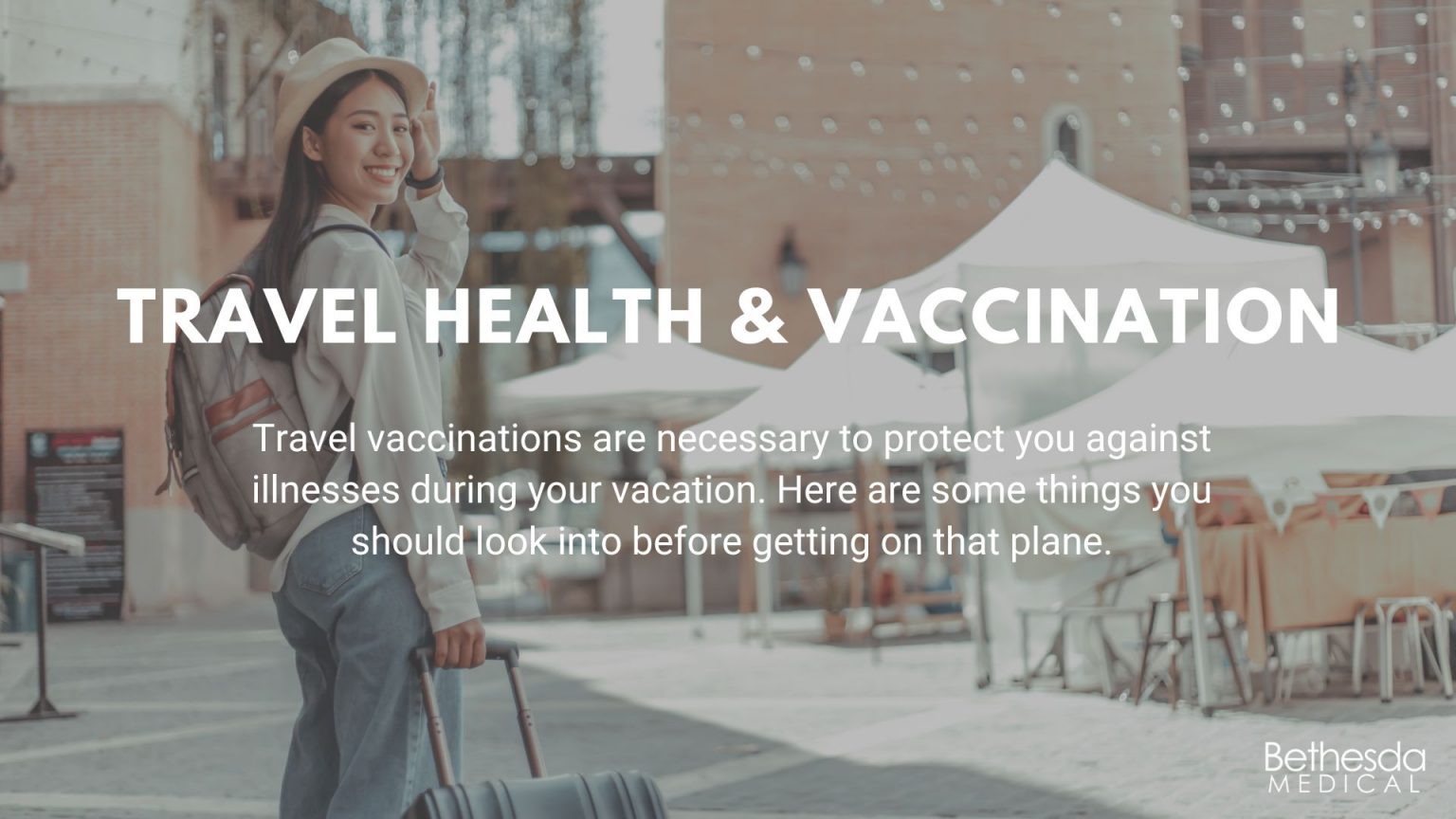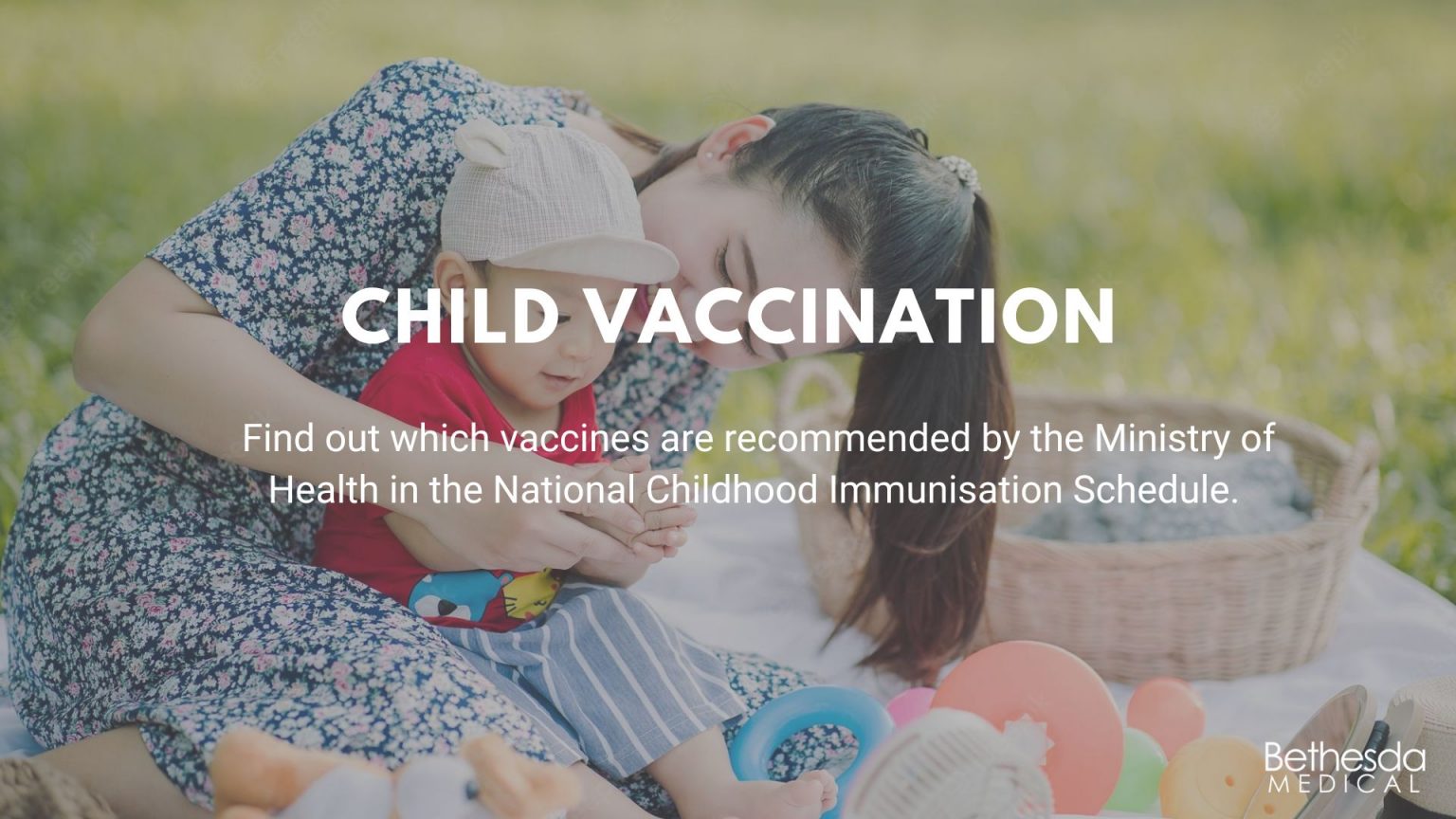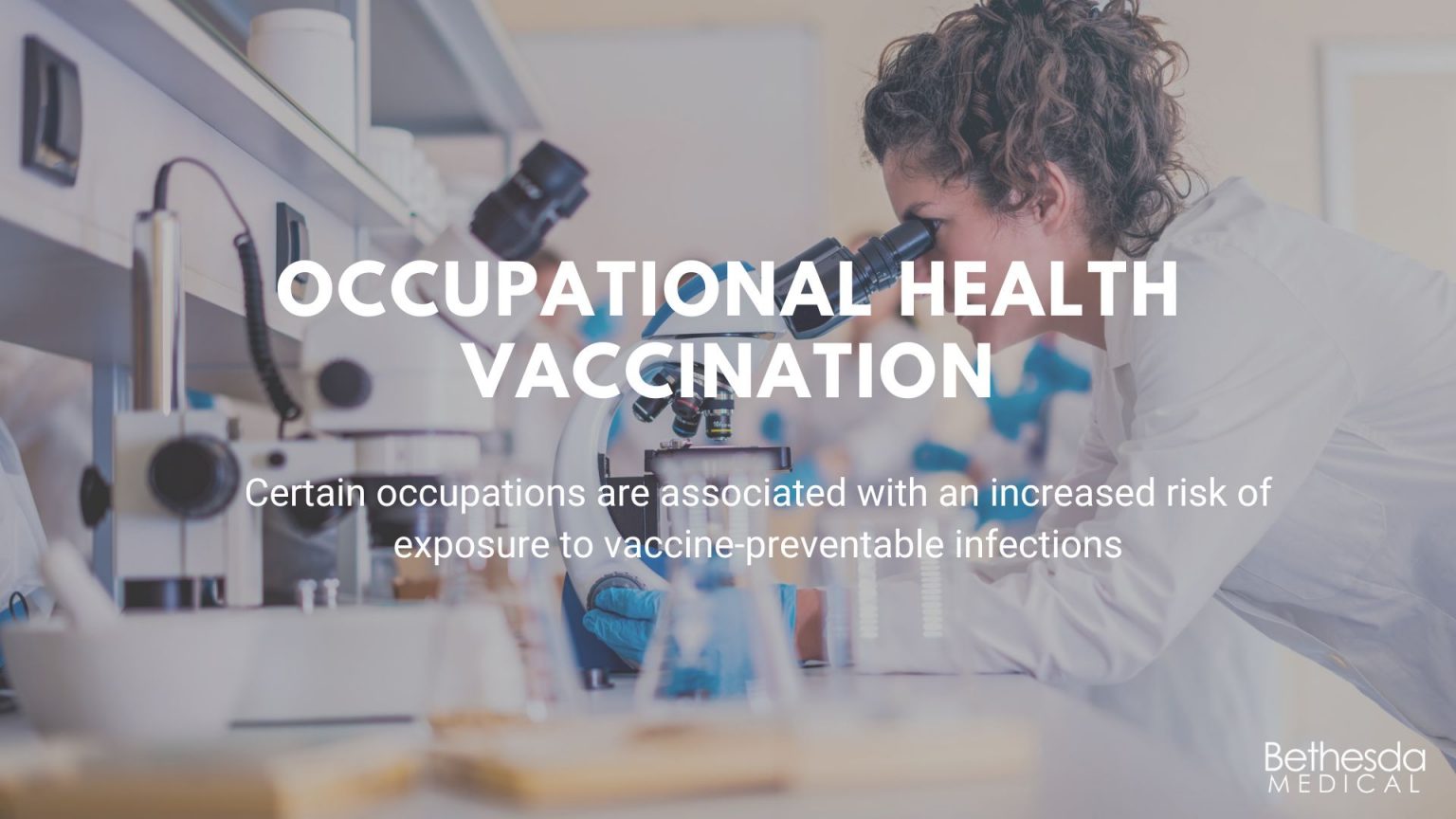
Other Vaccinations
Getting a vaccination?



Going on a vacation? Here’s what you need to know.
Which vaccines are recommended by the Ministry of Health in the National Childhood Immunisation Schedule?
Is your occupation associated with an increased risk of exposure to vaccine-preventable infections?
Book your vaccination today!


Remain One Step Ahead With
Travel Health Vaccinations
Before embarking on your next adventure, prioritise your health with travel vaccinations!
Our Travel Health & Vaccination Services
Our team of doctors and nurses will advise you on your vaccination needs and suitability to receive the recommended vaccines, depending on your age, health conditions, destination and occupation.
Bethesda Medical offers a comprehensive range of vaccinations and immunisations for the general well-being of individuals, and travellers. We also assist with statutory health checks that require vaccination advice.
Vaccination requirements may vary in different countries. We encourage you to get advice regarding recommended or required vaccinations for your destination and for the activities you have planned.
Pre-travel Health:
- Pre-travel evaluations for business trips, holiday and leisure travel, volunteer programs, mission groups, pilgrimages and disaster relief teams.
- Prevention and treatment advice for malaria and altitude illness. Medications may need to be prescribed by the doctor.
Vaccination:
- We also offers a comprehensive range of vaccinations and immunisations for the general well-being of individuals, and travellers as well as for statutory health checks that require vaccination.
Post-travel Health:
- Post-travel screening and treatment for travel related illnesses such as animal bites, parasitic infections, malaria, diarrhoea and other infections.
When should I take my travel vaccine?
You should try to schedule your vaccination appointment 4 to 6 weeks before your departure date. Most vaccines take 1-2 weeks to become effective while some vaccines must be given in a 2-3 dose series, with full protection only after completing all doses.
What should I bring to the appointment?
Please bring along all available vaccination records and information about your medical conditions and medications for the vaccination appointment.

Remain One Step Ahead With
Child Vaccinations
Protect your child against vaccine-preventable diseases today!
Child Vaccination and Childhood Developmental Screening Subsidies
What is National Childhood Immunisation Schedule?
The National Childhood Immunisation Schedule (NCIS) comprises childhood vaccinations recommended as the standard of care for protection against common vaccine preventable diseases that are of significant healthcare burden to Singapore. Under the Infectious Diseases Act, it is compulsory for parents and guardians to have their child vaccinated against diphtheria and measles.
Recommended vaccines under the NCIS schedule are free for eligible children, see list below.
The Vaccination and Childhood Development Screening Subsidies (VCDSS) is available at Bethesda Medical, and enables eligible Singapore Citizens to receive subsidies for nationally-recommended vaccinations and Childhood Development Screenings (CDS) at CHAS GP clinics.
Who is eligible?
Vaccination subsidies: All Singapore Citizens (SCs) and Permanent Residents (PRs) who meet the criteria for vaccination under the National Childhood Immunisation Schedule (NCIS) are eligible for subsidies for nationally-recommeded vaccinations.
Childhood Developmental Screening (CDS) subsidies: All children who are Singapore Citizens (from ages 0 to 6 years old) who attend CDS according to the recommended touchpoints under local guidelines will be eligible for CDS subsidies.
What are the benefits?
Singaporeans will benefit from higher subsidies of between $35 to $125 for nationally-recommended vaccinations listed on the Subsidised Vaccine List (SVL) administered at CHAS GP clinics. The below vaccinations and CDS are free for children under the NCIS schedule, where-ever applicable.
| S/N | Item |
| 1 | Childhood Developmental Screening |
| 2 | Diphtheria, tetanus and acellular pertussis, inactivated poliovirus and Haemophilus influenzae type b (DTaP- IPV-Hib) (5-in-1) |
| 3 | DTaP- IPV-Hib-HepB (6-in-1) |
| 4 | Hepatitis B (HepB) (Paediatric) |
| 5 | Human papillomavirus (HPV2) |
| 6 | Influenza (INF) (trivalent or quadrivalent) |
| 7 | Measles, mumps and rubella (MMR) |
| 8 | Measles, mumps, rubella and varicella (MMRV) |
| 9 | Oral poliovirus (OPV) |
| 10 | Pneumococcal conjugate (PCV10) |
| 11 | Pneumococcal conjugate (PCV13) |
| 12 | Pneumococcal polysaccharide (PPSV23) |
| 13 | Tdap-IPV |
| 14 | Tetanus, reduced diphtheria and acellular pertussis (Tdap) |
| 15 | Varicella (chickenpox) (VAR) |
Why are vaccinations important for children and babies?
Vaccinations are crucial for children and babies as they help protect them from serious and potentially life-threatening diseases. Vaccines stimulate the immune system to recognize and fight off specific pathogens, preventing the spread of contagious illnesses and reducing the risk of complications or long-term health issues.
Are vaccines safe for children and babies?
Yes, vaccines are extensively tested for safety and effectiveness before being approved for use. They undergo rigorous scientific evaluation and are continuously monitored for any potential side effects. Serious adverse reactions to vaccines are extremely rare, and the benefits of vaccination far outweigh the minimal risks.
What vaccines are recommended for children and babies?
The recommended vaccines for children and babies vary depending on their age, health condition, and specific guidelines in your country or region. Consult with your healthcare provider to determine the specific vaccines recommended for your child.
Is it necessary to follow the recommended vaccination schedule?
Following the recommended vaccination schedule is crucial to ensure optimal protection for your child. The schedule is designed to provide vaccines at specific ages when they will be most effective. Delaying or missing vaccines can leave your child vulnerable to preventable diseases. It is important to discuss any concerns or modifications to the schedule with your healthcare provider.
Can my child experience side effects from vaccines?
Most side effects of vaccines are mild and temporary, such as soreness at the injection site or low-grade fever. Serious side effects are extremely rare. It is important to note that the risks associated with vaccine-preventable diseases are far greater than the risks of vaccination. If you have specific concerns about side effects, discuss them with your healthcare provider who can provide you with accurate information and address your questions.

Remain One Step Ahead With
Occupational Health Vaccination
Safeguard yourself in the workplace today with Occupational Health Vaccinations!
Occupational Health Vaccinations
Is your occupation associated with an increased risk of exposure to vaccine-preventable infections?
Certain occupations are associated with an increased risk of exposure to vaccine-preventable infections. Employees who are infected could pass on the diseases to others. Vaccination can protect employees and keep workplaces free of vaccine-preventable infections such as measles and influenza. We encourage you to get advice regarding recommended or required vaccinations.
The following occupations should consider the need for vaccination, including but not limited to:
Healthcare workers who have contact with patients or work in clinical areas of hospitals:
– Hepatitis B (+/- hepatitis A )
– Chickenpox
– MMR
– Acellular DPT
– Meningococcal, pneumococcal (optional)
– fAnnual influenza vaccination
Laboratory personnel who perform cultures or handle certain pathogens:
– same as above
Employees who work in childcare and day care centres, and long-term care facilities:
– MMR
– Chicken Pox
– Tdap
Animal handlers and veterinary workers:
– Hepatitis B
– Rabies
– Tdap (tetanus, diphtheria and pertussis)
– Influenza
